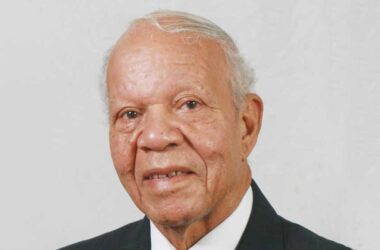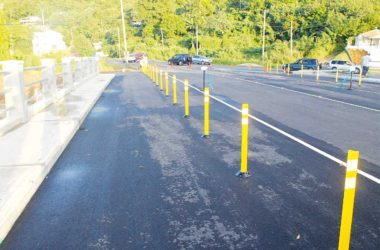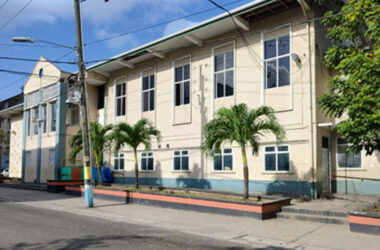POLITICIANS are notorious for practising opportunism and convenience, and seeking advantages over opponents at any cost. Delivering a statement in the House of Assembly this week on the Constituency Boundaries Commission report, the Prime Minister made the case that what was recommended was in line with the provisions of the constitution and its aim of promoting “fairness and balance in our affairs”.
It is most unfortunate, however, that the Commission did not allow the public an opportunity to be part of its deliberations because we believe that it would have received a very loud objection from a population that is already unimpressed with what they see of present-day parliamentarians in terms of performance and representation.
The fact that the Constitution makes no provision for such consultation does not mean that one should not have been held. We talk glibly about democracy and public participation in national affairs and yet we continue to make decisions in the name of the people without the slightest form of discussion with them. Look how this report was quickly rushed through the process.
We agree with the notion that as far as is possible our constituencies should reflect equality in the numbers of inhabitants but we do not agree that the only way to achieve this is to add more constituencies. Should not the cost of an enlarged House of Assembly, about $357,000 a year according to the Prime Minister, with the possibility of retiring allowances down the road costing millions more, be reason enough to put this added burden on the country on hold until better economic times?
If there was even the slightest guarantee from our political parties that there would be an attempt to select for the House of Assembly candidates who would add value to that chamber, transforming it into a forum for solid intellectual debate on the burning issues confronting our country that would have resulted in a better and more enlightened society, we might have had no objection to an increase in seats. But this is not on the agenda because the House has long ceased to be an “honourable” place, or a place of enlightenment and positive action on behalf of the people. The behaviour of many of our elected representatives has been found wanting, producing instead the atmosphere of a battleground or arena that has become an extension of the political platforms. For this, the country already pays them $2.5 million a year.
No one is fooled about the timing of this development. It is plain and simple, part of the ruling party’s plans to enhance its chances in the next general election. That’s what boundary changes are always about. It is inconceivable, given the level of our politics, that this Commission would meet and not have before it an agenda that was dictated by the government of the day. In St Lucia there is hardly ever any government appointed Commission or Committee that is “independent”, despite what the Prime Minister says.
Honestly, we would have liked to see action on constituency alignment that was part and a parcel of a wider set of reforms that are badly needed at this time to make members of parliament more accountable to the people who elected them to office. We believe that the Constitution Commission Report which has been with the government for some time, would contain a number of recommendations on such matters given the heightened public interest and participation that we saw during its months of public consultation.
St. Lucians have a lot on their chests about politics, politicians, parliament, the Cabinet, the judiciary etc. that desperately need attending to. The chairperson of that commission has since passed on and one hopes that the report she presented to the government did not die with her.















Abandon the current senate, replace its role with that of an appointee from a pool of district wide redesigned empowered town/ village councils. An elected executive system of 3 for small locales and 5 for larger locales : Mayor-Exec Secretary-Treasurer in the former and additional health advocate and education advocate in the latter.
THE professional staff for each council must meet national standards for their posts including CID screening and registering (finger prints etc.) With the new powers and fixed allocation of budgets NEPOTISM can be minimized with a vetted available pool based on first level of pro training that matches or exceeds job posting . relevance of prior work experience private and or gov/ current health status. Of course preference should be given to a district resident in the final instance where all the job merits, screenings qualifications are satisfied.
National considerations still overlay local biases via district reps and prime minister.
The professional staff must include someone with add on basic computer hardware and network systems utilities. If possible council premises should have income generating capacity as in rental office space, rental exposition /catering / banquet etc. Said premises should be strategically located as in a new hub of potential development.
The allocation of funds will be divided based on population size to the nearest tenth.
The Assembly reverts back to the old parish district lines. They coordinate the agendas of the MAYOR led councils- They meet on a regular basis with district mayors serial and or hub. They are the integrative legislative bodies that bind the micro economic functions vis a viz their town councils into the broader macro functions of the national quilt.
Furthermore, all the mayors of each district appoint one amongst them via secret ballot to be senator for that district (an embeddede checks and balances with no additional pay)
The focus of this new design is local citizenry and active participation in daily life.
Conflicting sizes of districts will not matter as the partitions will be local and intimately closer to the functional needs and scrutiny of local citizens.
Local agendas become the new manifesto.
Thus, national reps will be spending more time locally, coordinating these voter based agendas. All agendas are published in the official gazette.
This apparatus also gives less moneyed but able independents and small parties a fairer chance at infusing more rigor and vitality into governance at the important micro level with a strong impact on the macro level.